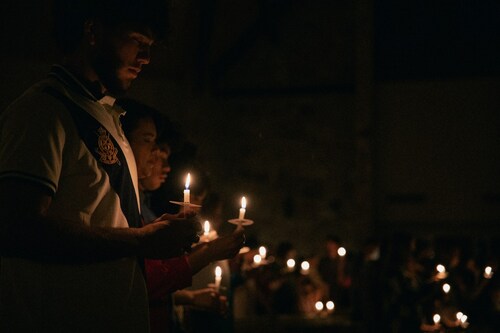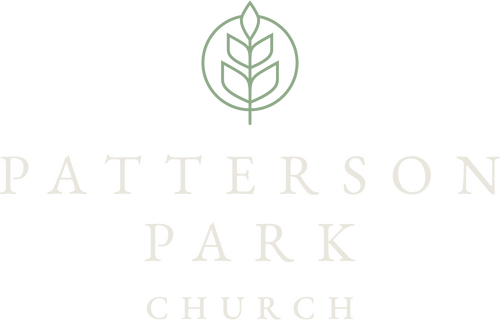Two Things I Learned from the Death of My Friend

Image courtesy of Unsplash
There are not many moments in my life that are etched indelibly on my mind, but the moment I learned of the death of a good friend and colleague was one of those moments.
My friend Ron was an extraordinary man: an excellent coach who used soccer as a vehicle for discipleship, a wise and godly teacher, and a great husband and dad.
He was extraordinary in another way: he took superb care of his body.
His father, who didn’t take care of himself, had died of heart disease in his early 40s. Ron was determined not to carry on that tradition, so he ate right, he was a runner (even leading the pack when he made his players run long distances), and he walked several blocks to and from work every day.
Ron had become a spiritual big brother to me, encouraging and counseling me when I became discouraged in my teaching. I loved and admired him.
That’s why, when I walked in the door on that January morning and my wife told me that Ron had died of a heart attack while he was jogging, it felt like someone had struck me on the chest.
He was 42 years old.
I remember how disorienting it was.
I remember feeling that it was a kind of sacrilege for the world to go on as usual: the sun still rose in the morning, the local news continued with its inane chatter about traffic and sports, people still went out to run errands.
How can life go on as usual when a catastrophe has shattered the world? It all seemed obscene.
But I learned two things from that devastating moment.
First, I learned that the day of our death is pre-ordained and cannot be changed.
If anyone could have staved off death by his concentrated effort, it would have been Ron. No one could have done more to ensure that his heart was sound and healthy, and yet he died in his early 40s, just as his father had.
I realized that even though taking care of my body will make life more pleasant for me (better stamina and focus), it cannot extend my life beyond the number of days already assigned to me. The psalmist tells us that the number of our days is ordained even before we are born: “In your book were written, every one of them, the days that were formed for me, when as yet there was none of them” (Psa 139:16).
That much I grasped pretty quickly after Ron’s passing. But the second thing I learned took some weeks, maybe even months, to process fully.
Early on, my biggest problem was that no matter how I looked at it, I couldn’t see a reason for this to happen.
It didn’t make sense when I thought of his wife and two children. It didn’t make sense when I thought of the young men on the soccer team or when I thought of the hundreds of students in the school who adored him and were devastated at his passing.
But then, as I thought about it, I realized that I was looking at this event from a very limited point of view. Here was my faulty assumption: Because I couldn’t think of a good reason for this to happen, there couldn’t be a good reason.
I gradually was able to make peace with this loss only by expanding my frame of reference. I came to realize that through the unexpected death of my friend and mentor, God was doing something wise and good beyond my capacity to understand.
Here's what I finally was able to tell myself:
If I could see all that God sees, if I could view this awful event from His vast and timeless perspective, from eternity to eternity, if I could understand all the reasons He had for the timing and manner of my friend’s departure from this life to the next, I would understand that God’s timing was in this instance, as always, impeccable, and His love is certain.
Many times in the decades since, when I have encountered deep pain, I have rehearsed this truth: Because God’s plan is wise beyond all telling, because His timing is always meticulous, because His love is always, always so faithful, I wouldn’t want to change His ways and means even if I could.
Persevere,
Paul Pyle
Pastor of Discipleship
My friend Ron was an extraordinary man: an excellent coach who used soccer as a vehicle for discipleship, a wise and godly teacher, and a great husband and dad.
He was extraordinary in another way: he took superb care of his body.
His father, who didn’t take care of himself, had died of heart disease in his early 40s. Ron was determined not to carry on that tradition, so he ate right, he was a runner (even leading the pack when he made his players run long distances), and he walked several blocks to and from work every day.
Ron had become a spiritual big brother to me, encouraging and counseling me when I became discouraged in my teaching. I loved and admired him.
That’s why, when I walked in the door on that January morning and my wife told me that Ron had died of a heart attack while he was jogging, it felt like someone had struck me on the chest.
He was 42 years old.
I remember how disorienting it was.
I remember feeling that it was a kind of sacrilege for the world to go on as usual: the sun still rose in the morning, the local news continued with its inane chatter about traffic and sports, people still went out to run errands.
How can life go on as usual when a catastrophe has shattered the world? It all seemed obscene.
But I learned two things from that devastating moment.
First, I learned that the day of our death is pre-ordained and cannot be changed.
If anyone could have staved off death by his concentrated effort, it would have been Ron. No one could have done more to ensure that his heart was sound and healthy, and yet he died in his early 40s, just as his father had.
I realized that even though taking care of my body will make life more pleasant for me (better stamina and focus), it cannot extend my life beyond the number of days already assigned to me. The psalmist tells us that the number of our days is ordained even before we are born: “In your book were written, every one of them, the days that were formed for me, when as yet there was none of them” (Psa 139:16).
That much I grasped pretty quickly after Ron’s passing. But the second thing I learned took some weeks, maybe even months, to process fully.
Early on, my biggest problem was that no matter how I looked at it, I couldn’t see a reason for this to happen.
It didn’t make sense when I thought of his wife and two children. It didn’t make sense when I thought of the young men on the soccer team or when I thought of the hundreds of students in the school who adored him and were devastated at his passing.
But then, as I thought about it, I realized that I was looking at this event from a very limited point of view. Here was my faulty assumption: Because I couldn’t think of a good reason for this to happen, there couldn’t be a good reason.
I gradually was able to make peace with this loss only by expanding my frame of reference. I came to realize that through the unexpected death of my friend and mentor, God was doing something wise and good beyond my capacity to understand.
Here's what I finally was able to tell myself:
If I could see all that God sees, if I could view this awful event from His vast and timeless perspective, from eternity to eternity, if I could understand all the reasons He had for the timing and manner of my friend’s departure from this life to the next, I would understand that God’s timing was in this instance, as always, impeccable, and His love is certain.
Many times in the decades since, when I have encountered deep pain, I have rehearsed this truth: Because God’s plan is wise beyond all telling, because His timing is always meticulous, because His love is always, always so faithful, I wouldn’t want to change His ways and means even if I could.
Persevere,
Paul Pyle
Pastor of Discipleship
Recent
I Am Moses: How Charlton and Cecil Have Misled Us
February 20th, 2026
The Question Moses Heard
February 13th, 2026
Playing My Part in God’s Long Game: Three Insights
February 6th, 2026
Two Questions That Never Go Away (Part Two)
January 30th, 2026
Two Questions That Never Go Away (Part One)
January 21st, 2026
Archive
2026
January
2025
January
February
March
April
May
July
August
September
October
November
2024
January
February
March
April
May
June
August
September
October
Categories
no categories
